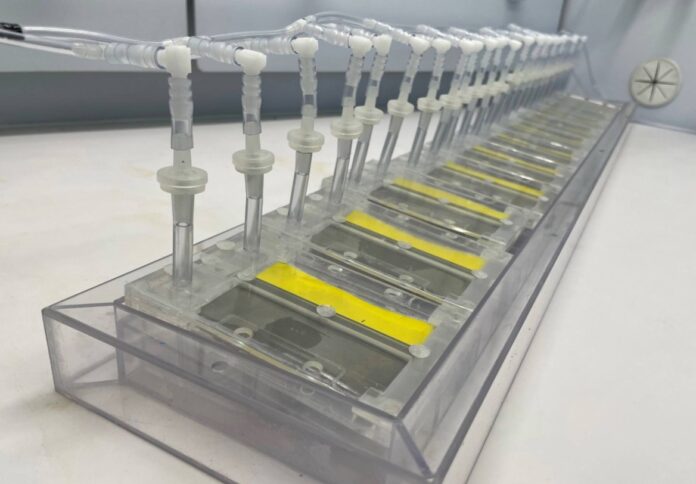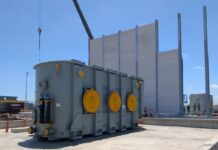
South East Water and RMIT University have been awarded the 2024 Water Minister’s Climate Innovation Challenge for their pioneering green hydrogen technology.
The innovative method, which combines solar energy and recycled water to produce green hydrogen and valuable oxidants, received $113,000 in Victorian Government funding as the competition’s top prize.
The project, described as a world-first, employs a floating modular platform to transform solar radiation and recycled water into green hydrogen, ozone, and hydrogen peroxide.
This breakthrough aims to cut carbon emissions, address energy challenges, and enhance water quality, positioning it as a potential game-changer in sustainable resource management.
Lara Olsen, managing director of South East Water, celebrated the recognition, emphasising the project’s contribution to tackling climate challenges.
“This achievement highlights the enormous potential for our industry to lead the way in addressing climate challenges. By transforming recycled water into clean energy and enhancing water treatment processes, this project demonstrates a real-world solution to achieving net-zero goals,” Olsen said.
The project is led by Dr Li Gao, a Strategic Research Manager at South East Water and ARC Industry Fellow at RMIT.
Dr Gao underscored the importance of collaboration between academia and industry in turning research into impactful solutions.
“The photocatalytic system is a scientific breakthrough, but it is only by working with industry partners such as South East Water that we are able to convert excellent research discoveries like this into real industry and community benefits,” he said.
Funding for the project includes $120,000 from South East Water and $130,000 from RMIT University, in addition to the Victorian Government’s contribution.
The combined investment will enable the development of a small-scale prototype to demonstrate the technology’s potential.
Designed to be scalable and adaptable, the floating hydrogen production system can be deployed in reservoirs, lagoons, and other water bodies.
The Water Minister’s Climate Innovation Challenge, now in its second year, is a collaboration between the Department of Energy, Environment and Climate Action, the Intelligent Water Networks, and the Minister for Water.
It aims to foster innovation in the water sector to address climate-related challenges.
South East Water and RMIT University plan to further refine the technology and prepare it for a broader rollout across Victorian water utilities.



















